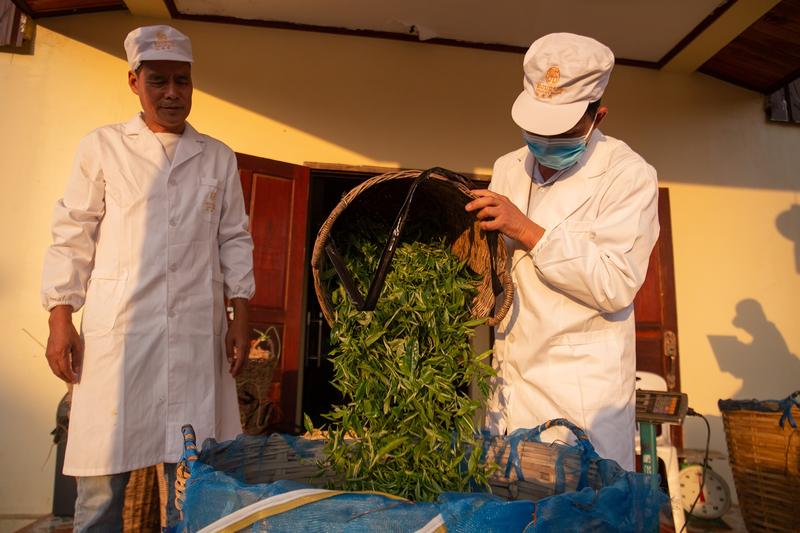Lao villagers taste success through Chinese tea
Lao villagers taste success through Chinese tea

VIENTIANE-A tea garden in the Paksong district of Champasak province has been good news for local people, providing them with a better lifestyle than they have ever known.
The plantation, which is owned by Lao Manor, a China-Laos venture, is one of the largest tea companies in Laos.
"In recent years, local people have built many new houses by selling tea to us," says Hu Xiaofeng, head of the plantation's factory. The factory not only processes tea from the 36 Manor plantation, but also encourages nearby villagers to plant their own tea, which the factory purchases.
"I can pick as much as 10 kilograms each day. I make 10,000 kips ($0.8) per kg," says Joy Keoduangta. The 24-year-old has been working in the 36 Manor plantation for four years. She can earn more than 100,000 kips ($8) a day from picking tea, about double the amount that is earned in nearby factories.
In the Bolaven Plateau of southern Laos, 484 km south of the capital Vientiane, many tea trees in the garden are more than 100, or even 1,000 years old. The tropical climate and loamy volcanic soil combine to give the tea a unique delicate flavor.
"Pesticides and fertilizers have never been used here," Xaiy Buaphaivan says. Xaiy is delighted to be working with organic products and has been in charge of the garden for four years.
"I used to work in a coffee garden and earned about 7 to 8 million kips ($601-687) a year. Now, I earn more than 20 million kips," he says. "And the tea tastes very good, too."
